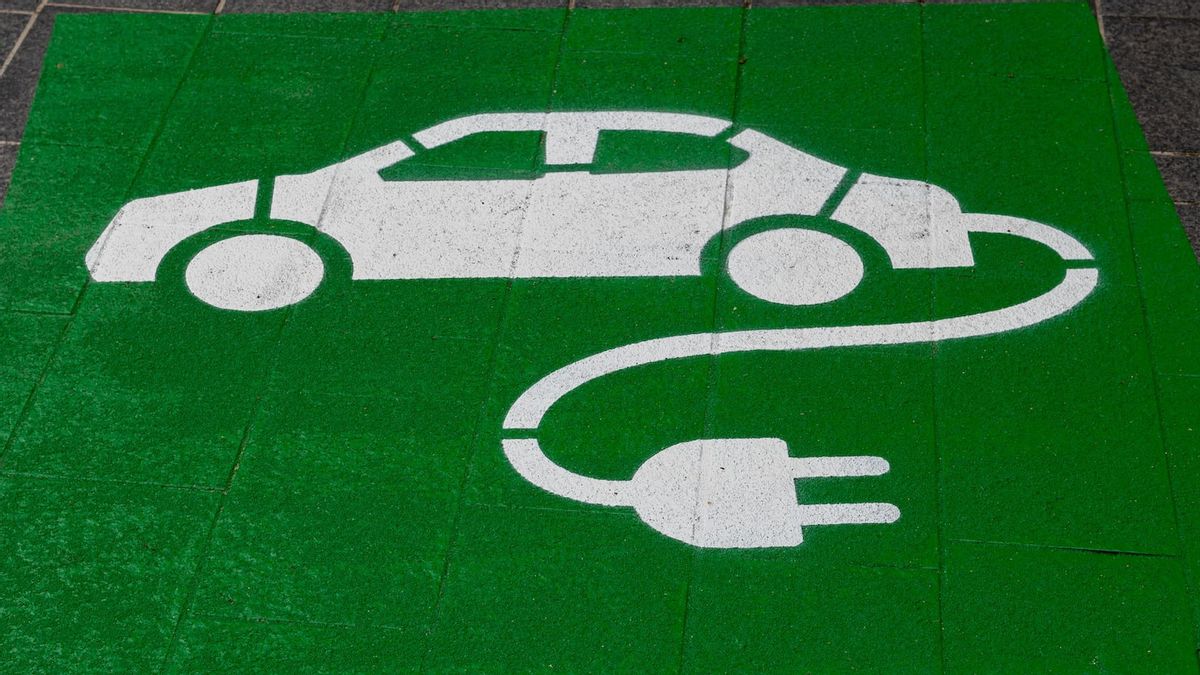
YOGYAKARTA - Even though electric cars receive more positive attention and become more common, their adoption is slow. This is typical of any new technology. Partly because of the fact that people don't trust electric vehicle technology (Electric Vehicle) and have a lot of doubts. In fact, there are still many people who don't think EVs can replace gasoline-fueled cars, then what's the reason people are reluctant to buy electric cars? While many automakers are making moves in electrification, it seems that most are not ready to make a transition.
There are several clear reasons why the public doesn't buy EVs, such as upfront costs, lack of availability, and range anxiety. However, many myths have clouded this segment for some time now. Some of these myths may be somewhat valid under certain circumstances or may be true in the past, but times have changed and technology has escalated drastically since EV first entered the market.
Currently, EVs consist of less than 2% of the automotive market in the US. This means it will take years before adoption expands. However, with many automakers bringing electric vehicles to market in the near future, growth is accelerating. Over time, with more electric vehicles available, increasing the spread of charging infrastructure, and reducing production and battery costs, the EV segment should begin to grow.
Keep reading to learn why many arguments against EVs are not always valid, and to see if electric cars will be a good choice for you either now or in the future.
Anxiety Range
One of the main concerns for EV buyers is the range. Some electric cars can match the range of most gas-powered vehicles.
Plug-in hybrids (PHEVs) such as Chevrolet Volt, Prius Prime, and Honda Clarity Plug-In Hybrid are the best choices if reach is a concern. They offer a number of pure electric range, along with gas-powered engines for range expansion. Some PHEVs actually have a wider reach than traditional cars due to efficiency and some powertrains.
With that, the range grows for electric vehicles completely. Most of the current EV offers more than enough range to cover the driver's average daily travel and responsibility. Nissan Leaf is rated up to 226 miles, Chevrolet Bolt has a range of 259 miles, Hyundai Kona Electric offers 258 miles, and all Tesla vehicles exceed 300 miles with full payloads. The Tesla Model S Long Range has just reached the range of 402 miles that EPA estimates, which far exceeds each EV to date. It should be noted that, in some cases, you should choose a higher trim level to gain maximum range.
Gradually Filling Time
It takes longer to charge EVs than to pump gas, but charging times are reduced as charging technology increases. In addition, if you charge at home overnight, it's as easy as plugging in before going to bed and pulling in the morning. That means no more trips to gas stations and no more toxic hands or smoke.
If you have to charge on the road, charging speeds vary widely, and rely on vehicles and chargers. Usually, EV chargers are located on public travel routes in areas where you can eat or shop while waiting, and you don't have to live in a vehicle while charging. Thanks to the latest public fast charging technology, some electric cars can cover hundreds of miles in just 15 to 20 minutes.
High Price
Electric cars are often more expensive upfront than gas-powered vehicles comparable. "Short of stickers" can keep buyers away from EVs, especially as initial prices are considered broadly than the overall cost of having one.
Electricity is much cheaper than gas, and EVs are very efficient, so you will be charged less per mile to drive an electric car. EVs also require very little maintenance. There are fewer parts that move, and almost no fluid is replaced. Moreover, electric motors tend to work for a very long time without any routine maintenance. For example, Chevrolet Bolt does not require maintenance for the first 150,000 miles.
In addition to saving money for gasoline and services, most electric vehicles qualify for tax deductions of up to $7,500 from the US government. If you take into account this savings during the vehicle's life, EVs may not be more expensive to own.
Tax credits will eventually go away, but battery prices will drop. Also, when automakers start making EVs in larger volumes, production costs will eventually drop to reach price balance with traditional vehicles.
You can also consider electric cars that are used gently. The current depression of electric cars is quite high, so used electric cars are generally cheap.
Battery Will run out
Most of the all-electric models haven't been around long enough to garner excessive miles, and there are many complex variables associated with battery degradation.
However, ongoing studies on Tesla vehicles show that after 150,000 miles, most of the batteries lost only 8% of their capacity. At this rate, these batteries can maintain 80% capacity at 500,000 miles and potentially last more than one million miles. The average age of gasoline cars is about 140,000 miles.
Fire danger
Due to several published electric vehicle accidents that caused the fire, some believe EVs are a danger of fire. However, every day there are countless vehicle fires from accidents involving gasoline cars, but few are making news because it is very common.
The batteries used in EVs are the same type of lithium-ion found on laptops and cell phones. While there is always the possibility that any electronic device can catch fire, how often do we worry about our laptops or mobile devices burning spontaneously? On the other hand, you should bet that most people are careful when using gasoline because of its highly flammable nature and potential fire hazards.
Performance Under Standard
When electric vehicles first came to the market, some people joked about comparing them to golf carts. This is because efficiency is more important than performance. Let's face it: The first-generation Toyota Prius and Nissan Leaf are not speedsters. In addition, they are small cars with exterior that can be said to be polarized.
EVs are now much more advanced, and become more common in finding powerful EVs in cars and sports SUVs. Their electric propulsion systems provide instant torque and impressive zero to 60 mph time, which is a metric that you will definitely pay attention to in everyday driving. Tesla vehicles can easily run faster than most gas-powered supercars, and at lower prices. While many electric cars still do not offer the highest speed comparable to gasoline cars, unless you violate the law, you may not be aware of them.
After understanding why people are reluctant to buy electric cars, see other interesting news on VOI, it's time to revolutionize news!
The English, Chinese, Japanese, Arabic, and French versions are automatically generated by the AI. So there may still be inaccuracies in translating, please always see Indonesian as our main language. (system supported by DigitalSiber.id)








